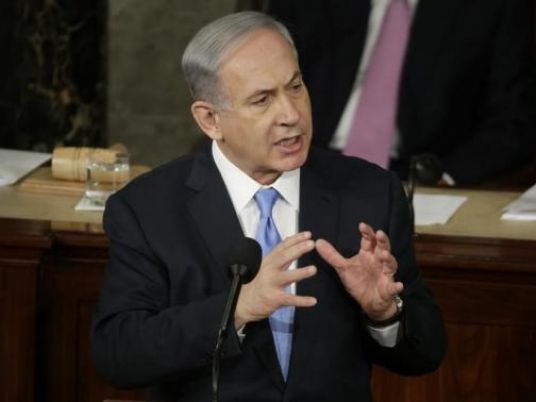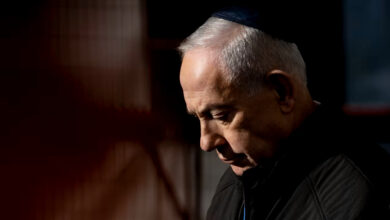
Israel said on Sunday it was suspending contacts with European Union bodies involved in peace efforts with the Palestinians after the bloc started requiring the labelling of exports from Israeli settlements in the West Bank.
Prime Minister Benjamin Netanyahu ordered the foreign ministry to carry out "a reassessment of the involvement of EU bodies in everything that is connected to the diplomatic process with the Palestinians", a ministry statement said.
"Until completion of the reassessment, the Prime Minister has ordered a suspension of diplomatic contacts with the EU and its representatives in this matter."
EU officials played down the significance of the Israeli move, saying it had been threatened in the past and that it was only a suspension which could be lifted soon.
The EU published new guidelines on November 11 for labelling products made in Israeli settlements, a move Brussels said was technical but which Israel branded "discriminatory" and damaging to peace efforts with the Palestinians.
Drawn up over three years by the European Commission, the guidelines mean Israeli producers must explicitly label farm goods and other products that come from settlements built on land occupied by Israel if they are sold in the European Union.
The EU's position is that the lands Israel has occupied since the 1967 Middle East war – including the West Bank, East Jerusalem and the Golan Heights – are not part of the internationally recognized borders of Israel.
As such, goods from there cannot be labelled "Made in Israel" and should be labelled as coming from settlements, which the EU considers illegal under international law.
After the EU announcement, Netanyahu called it "hypocritical and a double standard", saying the EU was not taking similar steps in hundreds of territorial conflicts elsewhere in the world.
"The European Union should be ashamed of itself," he said while on an official visit in Washington earlier this month. "We do not accept the fact that Europe is labelling the side being attacked by terrorist acts."
Farmers worried
The development of settlements has been one of the obstacles to negotiations between Israel and the Palestinians. US-backed peace talks stalled in April 2014.
"It's an indication of origin, not a warning label," the EU ambassador to Israel, Lars Faaborg-Andersen, told Reuters after the bloc's decision was announced.
Britain, Belgium and Denmark already affix labels to Israeli goods, differentiating between those from Israel proper and those, particularly fruit and vegetables, that come from the Jordan Valley in the occupied West Bank.
Following the decision, all 28 EU member states will have to apply the same labelling.
Israel's economy ministry estimated this would affect goods worth about US$50 million a year, including grapes and dates, wine, poultry, honey, olive oil and cosmetics made from Dead Sea minerals.
That is around a fifth of the $200-$300 million worth of goods produced in settlements each year, but a drop in the ocean next to the $30 billion of goods and services traded annually between Israel and the European Union.
Israeli farmers and wine growers in the West Bank have expressed worry about the impact on their business and some have begun diversifying into markets in Russia and Asia to escape EU rules.
In its statement, the Israeli foreign ministry said contacts with individual EU countries – it named Germany, France and Britain – would not be affected by Sunday's announcement.
A ministry official said Israel would cease assisting EU-sponsored projects intended for the Palestinians, but no specific instances or bodies were named.




